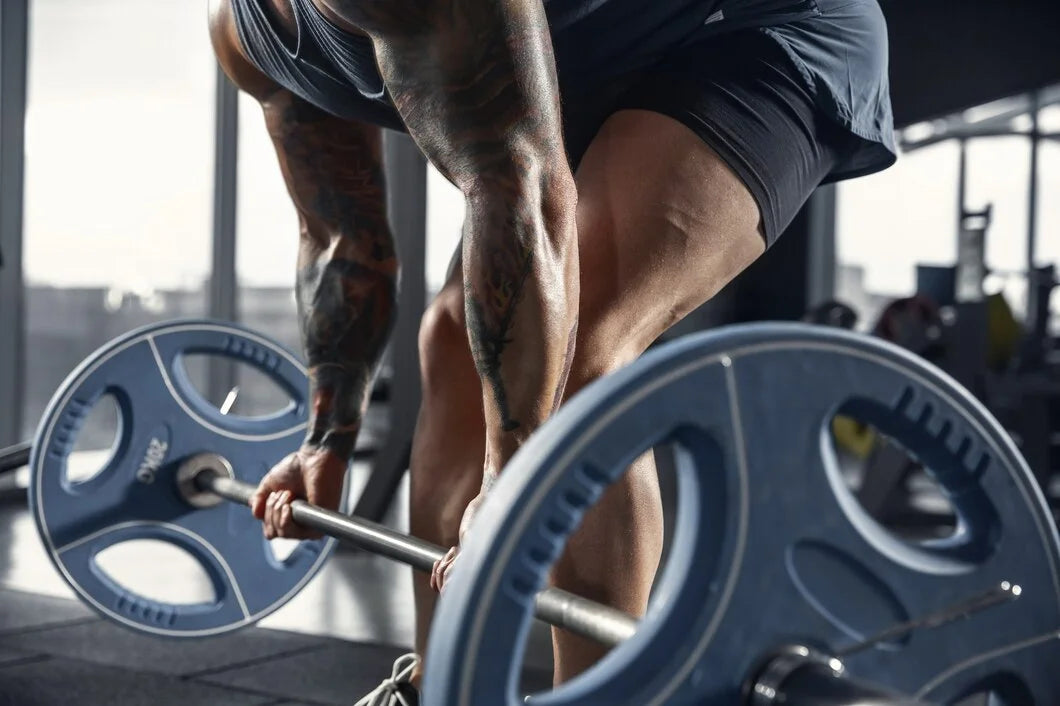
Gaining muscle without gaining fat: mistakes to avoid
Do you want to gain muscle without gaining fat? It's a goal many share, but it's far from easy. Eating more seems like the solution, but how can you avoid turning your body into a balloon? After several years of training, we know there are common mistakes to avoid. In this article, we'll show you the ones we've made and give you our practical advice to help you achieve your goals without gaining excess fat.
Neglecting your diet: a fatal mistake
When gaining mass, it can be tempting to eat anything and everything under the guise of increasing your calorie intake. However, fast food, sweets, and processed foods are far from being allies. They provide empty calories and hinder your performance.
Ideally, opt for quality protein sources, complex carbohydrates, and healthy fats. Don't underestimate the importance of micronutrients like vitamins and minerals, which are essential for muscle recovery and growth.
Undereating: the obstacle to progress
Trying to avoid fat gain by cutting calories too much is a common mistake. To build muscle, you need to consume more energy than your body expends. A calorie deficit will compromise your recovery and limit your muscle growth.
The trick is to find the right balance: a slight calorie surplus allows for effective mass gain without excess fat. Adjust your intake based on your progress and performance.
Overeating without control
Conversely, eating excessive amounts of food in the hope of accelerating muscle gain is a false positive. Poorly controlled excess calories mainly lead to excess fat storage.
The priority is to ensure sufficient protein intake, which is the basis for muscle building. According to ANSES, requirements vary between 1.3 g and 1.5 g/kg of body weight for bodybuilders. Exceeding 2.5 g/kg/day provides no additional benefits.
Neglecting hydration: an underestimated mistake
We often talk about nutrition, but water plays an equally crucial role. Proper hydration improves nutrient absorption, speeds recovery, and optimizes performance.
Drinking between 1.5 and 2 liters of water per day is the minimum. Depending on the intensity of your workout and how much you sweat, don't hesitate to increase this amount.
Loading too heavy too quickly: the ego trap
Lifting too heavy at the expense of technique is a common mistake. It increases the risk of injury and hinders your progress.
Focus on gradual progression in weight, always ensuring clean and controlled execution. Good technique ensures effective muscle development and limits injury. If necessary, seek the help of a coach.
Avoiding protein powder: a false belief
Some people think you should rely solely on solid foods for progress. However, protein powders are often more easily digestible, especially creatine , which is quickly absorbed by the body.
Ideally, you should alternate between solid proteins and protein powders for optimal digestion and efficient muscle synthesis. For successful muscle gain, incorporating the right proteins is essential for visible and lasting results.

Changing programs too often
A training program must be followed long enough to produce results. Changing your exercises every week prevents your body from adapting and jeopardizes your progress.
A good program should be maintained for at least four to six weeks before evaluating its effects. Be patient and consistent to maximize your gains.
Maximizing your fat-free muscle gain requires a thoughtful and structured approach. By avoiding these common mistakes, you'll optimize your performance and ensure quality gains. Be patient, rigorous, and methodical: this is the key to effective and sustainable progress!